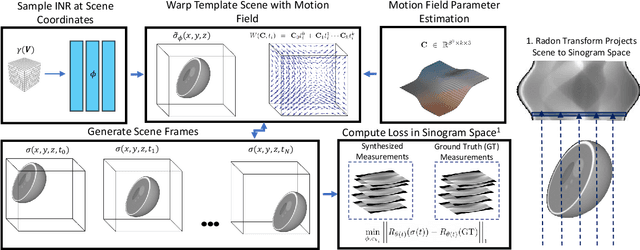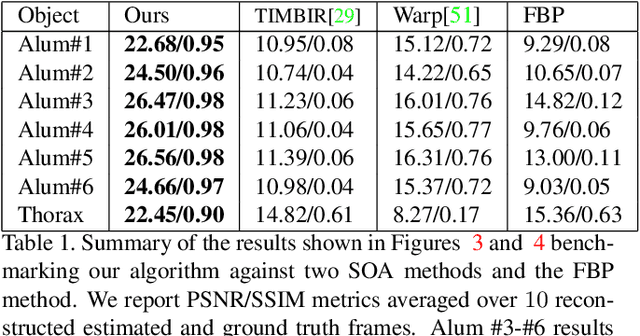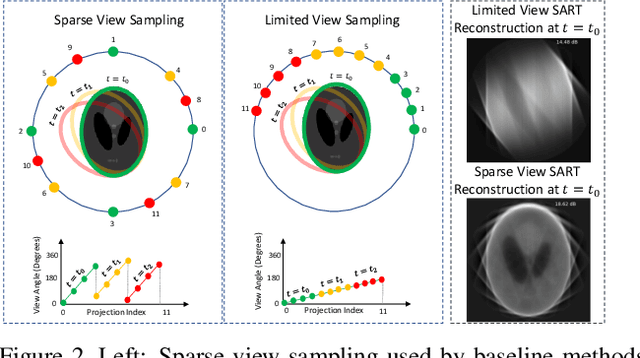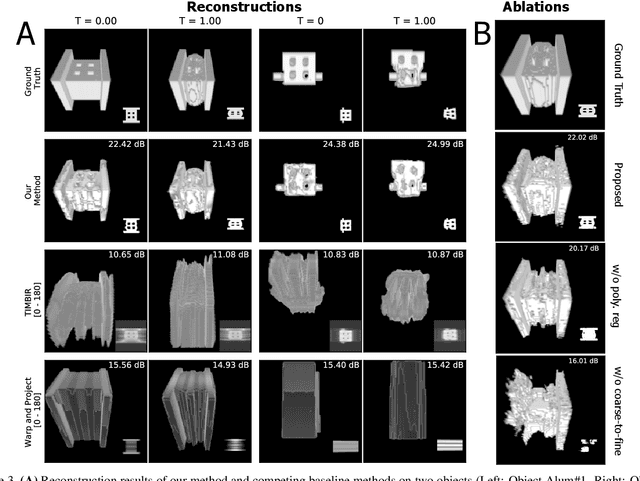Dynamic CT Reconstruction from Limited Views with Implicit Neural Representations and Parametric Motion Fields
Paper and Code
Apr 23, 2021



Reconstructing dynamic, time-varying scenes with computed tomography (4D-CT) is a challenging and ill-posed problem common to industrial and medical settings. Existing 4D-CT reconstructions are designed for sparse sampling schemes that require fast CT scanners to capture multiple, rapid revolutions around the scene in order to generate high quality results. However, if the scene is moving too fast, then the sampling occurs along a limited view and is difficult to reconstruct due to spatiotemporal ambiguities. In this work, we design a reconstruction pipeline using implicit neural representations coupled with a novel parametric motion field warping to perform limited view 4D-CT reconstruction of rapidly deforming scenes. Importantly, we utilize a differentiable analysis-by-synthesis approach to compare with captured x-ray sinogram data in a self-supervised fashion. Thus, our resulting optimization method requires no training data to reconstruct the scene. We demonstrate that our proposed system robustly reconstructs scenes containing deformable and periodic motion and validate against state-of-the-art baselines. Further, we demonstrate an ability to reconstruct continuous spatiotemporal representations of our scenes and upsample them to arbitrary volumes and frame rates post-optimization. This research opens a new avenue for implicit neural representations in computed tomography reconstruction in general.
 Add to Chrome
Add to Chrome Add to Firefox
Add to Firefox Add to Edge
Add to Edge